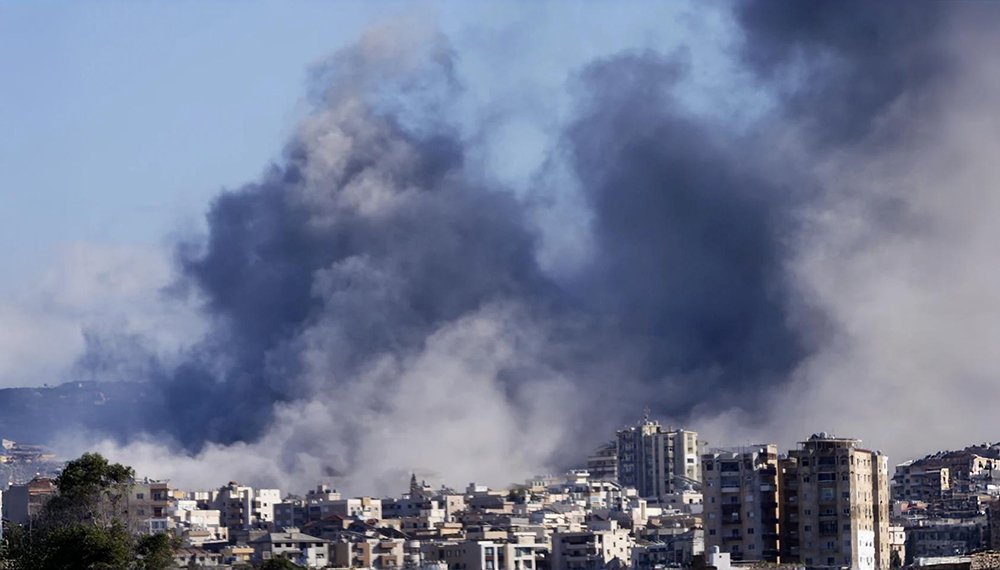|
Getting your Trinity Audio player ready...
|
Edited by: Fern Sidman
The Israeli Cabinet convened on Tuesday evening to approve a significant ceasefire agreement brokered by the United States aimed at halting hostilities in Lebanon. The agreement is set to take effect at 10:00 a.m. on Wednesday, marking a critical moment in efforts to de-escalate tensions in the region.
Israeli Prime Minister Benjamin Netanyahu’s office said the plan was approved by a 10-1 margin. The late-night vote came shortly before President Biden was expected to announced details of the deal in Washington.
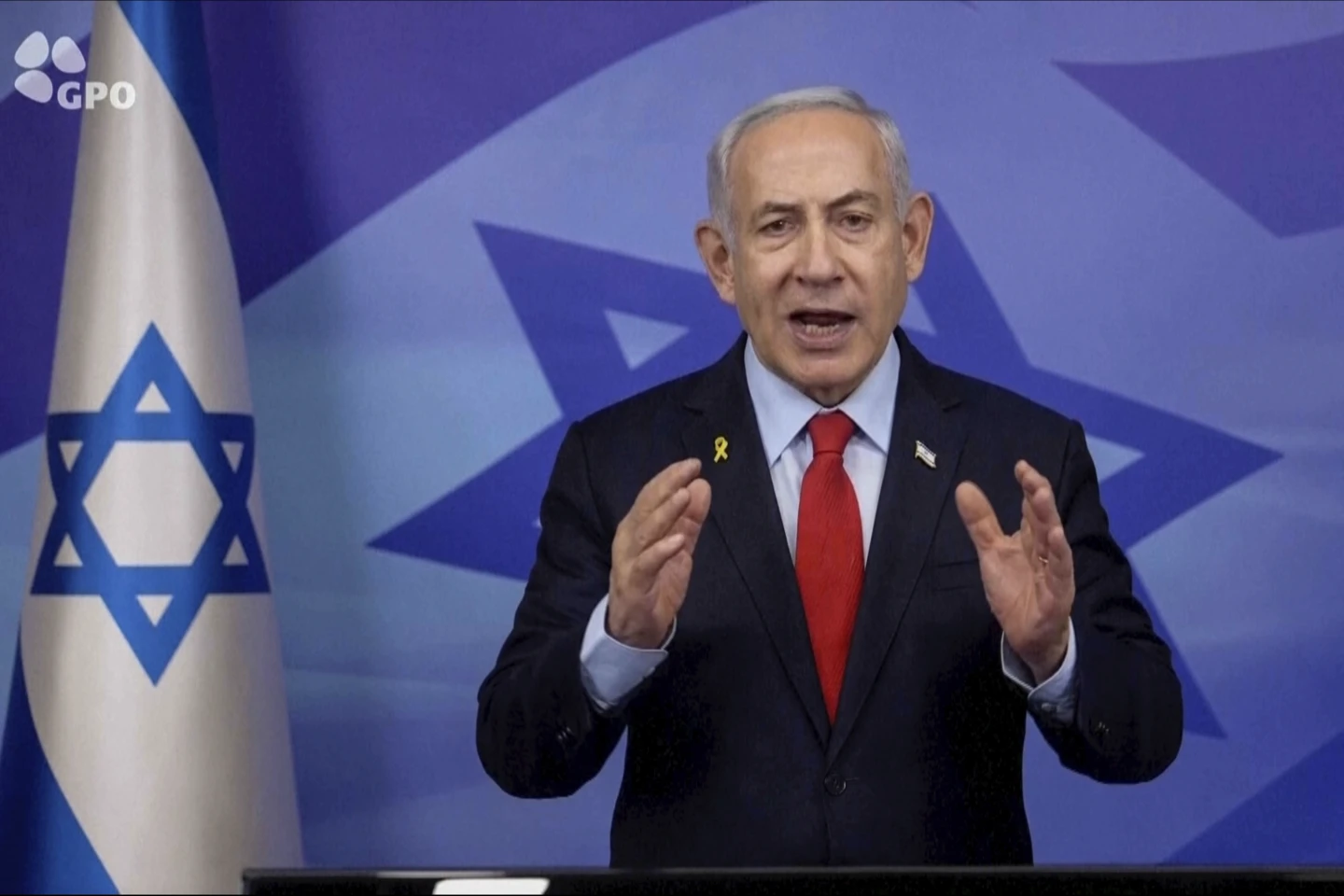
According to a report on the Israel National News web site, ahead of the Cabinet’s approval, Prime Minister Netanyahu addressed the nation, framing the ceasefire as a strategic step toward achieving broader objectives. “I promised victory, and we will achieve victory,” he declared, emphasizing his commitment to dismantling Hamas, securing the release of Israeli hostages, and ensuring the safety of residents in Israel’s northern regions.
Netanyahu highlighted key achievements of the Israeli Defense Forces (IDF) during recent operations. “We have destroyed significant parts of Iran’s air defense and a significant component of its nuclear program,” he stated. He also underscored the extensive setbacks inflicted on Hezbollah, claiming that Israeli operations had “set Hezbollah back decades.”
INN reported that the Prime Minister added a strong warning to Hezbollah regarding adherence to the ceasefire. “If Hezbollah doesn’t follow the agreement, we’ll attack,” he said, specifying that any attempt to rebuild terrorist infrastructure or transfer weaponry near the Israeli border would provoke an immediate response.
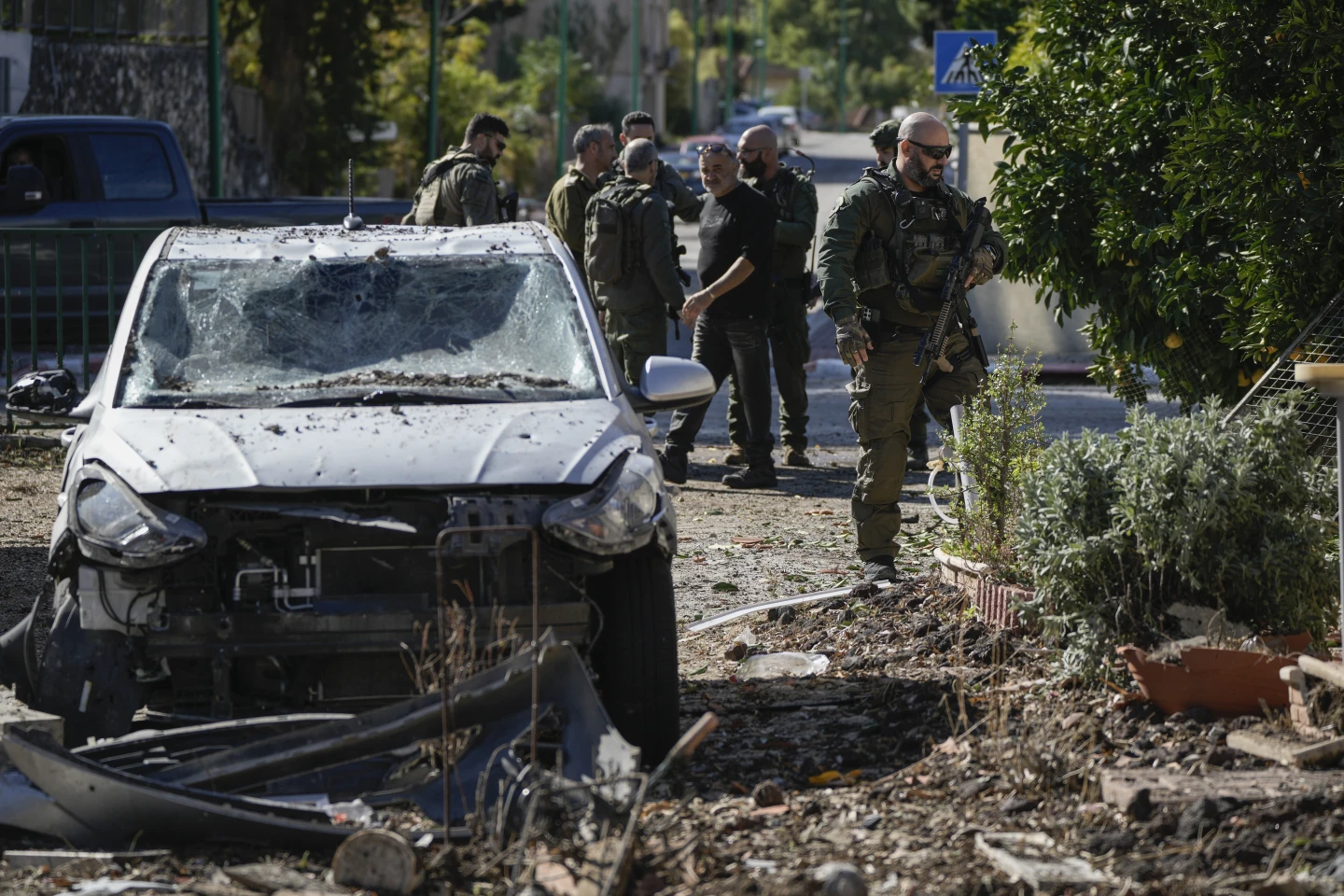
Channel 13 News political correspondent Moriya Asraf outlined the key provisions of the ceasefire, which aim to establish a temporary détente between Israel and Lebanon. As per the information provided in the INN report, a cessation of hostilities will occur as Hezbollah and other armed terror groups in Lebanon are prohibited from launching any offensive actions against Israel. In return, Israel will refrain from military operations targeting Lebanon by land, air, or sea.
Both Israel and Lebanon will reaffirm the importance of recognizing UN Security Council Resolution 1701 which calls for the disarmament of all armed groups in Lebanon and the establishment of the Lebanese government’s authority across its territory. However, the agreement clarifies that both nations retain their inherent right to self-defense.
The agreement stipulates that Lebanon’s official military and security forces will be the only entities authorized to bear arms or conduct military operations in southern Lebanon, the INN report said, Additionally, any sale, supply, or production of arms for use in Lebanon must be fully supervised by the Lebanese government.
The ceasefire approval was widely regarded as a foregone conclusion, driven in part by substantial pressure from the Biden administration. According to the INN report, the United States exerted considerable leverage, reportedly threatening to withhold its veto power at the United Nations Security Council. There were also suggestions that Washington might deny Israel’s request to purchase 134 armored D9 military bulldozers, vital for its defensive and operational needs.
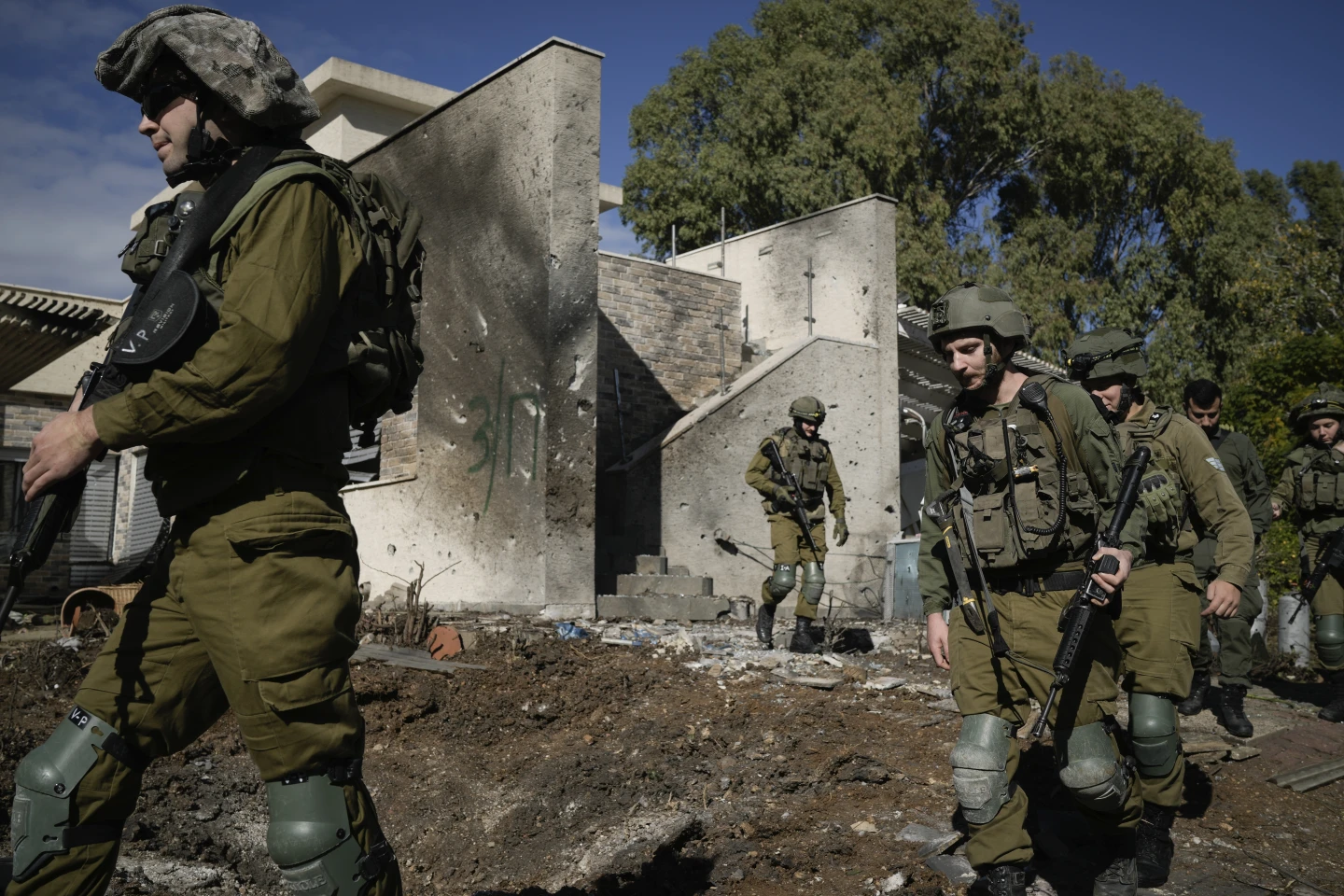
An unnamed Israeli official, speaking to INN, admitted uncertainty regarding the longevity of the ceasefire. “We don’t know how long it will last,” the official stated. “It could be a month; it could be a year.”
The agreement arrives at a critical juncture, with Israel balancing military objectives against international diplomatic pressures. Netanyahu’s framing of the ceasefire as a tactical maneuver highlights its dual purpose: providing a temporary reprieve from hostilities while maintaining readiness to act decisively if Hezbollah or other groups violate the terms.
The IDF’s recent campaigns, described by Netanyahu as encompassing “enormous achievements on seven fronts,” appear to have laid the groundwork for this agreement. However, the INN report indicated that the ceasefire’s success will hinge on strict adherence to its terms by all parties and the ability of the Lebanese government to assert control over its territory—a challenge that has historically proven elusive.
While the ceasefire agreement represents a step toward stabilizing the region, its durability remains in question. As INN noted, the inclusion of language affirming the right to self-defense leaves room for interpretation, potentially complicating enforcement. Moreover, the broader geopolitical implications, including Iran’s influence in Lebanon and the role of Hezbollah, continue to loom large.
In his address, Netanyahu sought to assure the Israeli public of his government’s resolve. “This evening, I will bring before the Cabinet a ceasefire plan. How long it will be depends on what will happen in Lebanon,” he said, reflecting the tenuous nature of the truce.
According to INN report on Tuesday, the agreement mandates the dismantling of all unauthorized facilities engaged in manufacturing weapons and military materials. It also requires the destruction of Hezbollah’s military infrastructure and positions in southern Lebanon. Any weapons that do not comply with these conditions will be confiscated under the oversight of a monitoring committee jointly established by Israel and Lebanon.
The monitoring committee, supported by the United Nations Interim Force in Lebanon (UNIFIL), will serve as a mechanism for both nations to report potential breaches, the report indicated. This collaborative approach aims to ensure enforcement and foster transparency, though its effectiveness remains uncertain given Lebanon’s historical challenges in curbing Hezbollah’s influence.
As part of the agreement, Lebanon is obligated to deploy its official security forces and military along all borders and crossing points, particularly in the southern region near the Blue Line. The INN report highlighted that this deployment will follow a detailed plan to ensure that the Lebanese government, rather than Hezbollah, asserts control over the area.
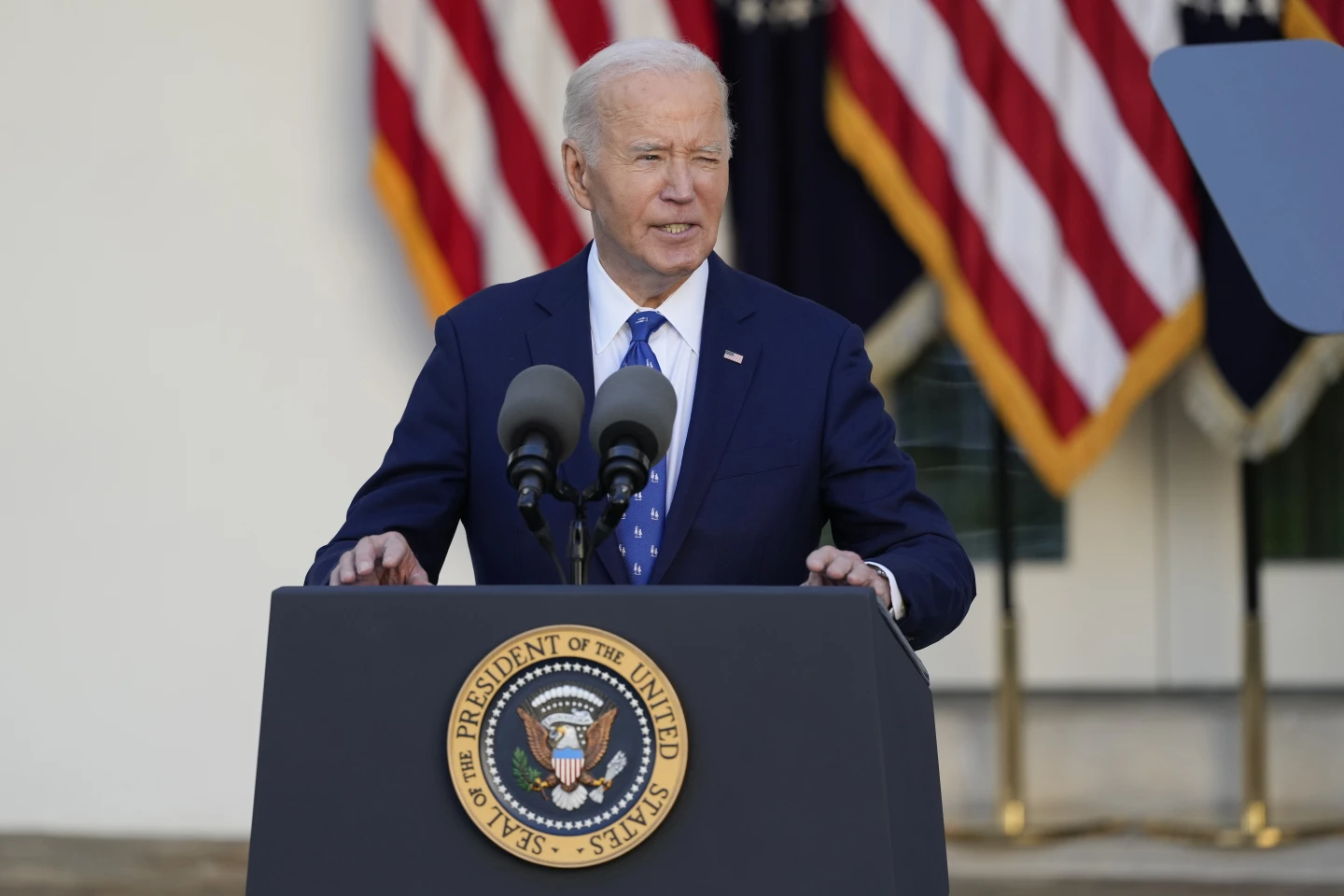
The phased withdrawal of Israeli forces from southern Lebanon, set to occur over a 60-day period, is contingent upon these deployments. This withdrawal signifies a critical shift in the security dynamics of the region, as the Lebanese army takes responsibility for the southern bank of the Litani River.
Under the proposed terms, Israel retains the right to retaliate against Hezbollah in the event of a ceasefire violation or attempts by the group to rebuild its military infrastructure, as was indicated in the INN report. This provision, guaranteed through a letter from the Biden administration, has been deemed non-negotiable by Israeli officials.
Despite this assurance, the deal imposes limitations after the initial 60-day ceasefire. While the Israel Defense Forces (IDF) will remain in southern Lebanon during the truce, they will eventually withdraw, and Israel will forfeit the ability to administer a security buffer zone in the region, as per the information contained in the INN report. This raises concerns about whether the Lebanese army can effectively prevent Hezbollah from rearming.
To bolster compliance, an international committee led by the United States and including France will oversee the agreement. As reported by INN, this committee will monitor arms sales and production within Lebanon, aiming to curtail Hezbollah’s access to advanced weaponry. Beirut will bear the primary responsibility for enforcing these restrictions, a task that has proven challenging in the past due to Hezbollah’s entrenched power.
The deal’s broader implications extend beyond the immediate ceasefire. According to INN, the United States plans to facilitate indirect negotiations between Israel and Lebanon to define a mutually recognized land border. White House National Security Communications Advisor John Kirby noted that the administration is “close” to finalizing the agreement but emphasized that “nothing is done until everything is done.”
While the agreement represents a step toward de-escalation, it has ignited fierce debates in Israel. Right-wing lawmakers argue that halting military operations without achieving a decisive victory against Hezbollah risks emboldening the terror group, as was suggested in the INN report. Agriculture Minister Avi Dichter, a former head of Shin Bet and a member of Likud, expressed his reservations on X/Twitter, stating that he had not yet decided whether to support the plan.
For Israel, the deal offers the opportunity to de-escalate a costly conflict, albeit with significant risks. By preserving the right to retaliate militarily, Israeli leaders aim to maintain a deterrent against future aggression. However, critics warn that relying on Lebanon and international actors to enforce compliance could leave Israel vulnerable.
The Israeli military campaign against Hezbollah in southern Lebanon has reached a critical juncture, marked by strategic precision and significant achievements. As reported by INN, the IDF has intensified its efforts to dismantle Hezbollah’s terror infrastructure while ensuring the safe return of northern Israeli residents to their homes. This follows Prime Minister Benjamin Netanyahu’s directive on Friday, September 13, to prioritize civilian resettlement as a key objective of the ongoing conflict.
Operation Northern Arrows, launched in response to escalating tensions on Israel’s northern border, represents a strategic pivot in Israel’s broader military efforts. Initially concentrated on Gaza, the IDF has gradually redeployed its forces to southern Lebanon to neutralize Hezbollah’s growing threat. According to INN, the operation has focused on targeted and localized ground assaults designed to minimize civilian casualties while crippling Hezbollah’s operational capacity.
The operation has been marked by the elimination of high-profile figures in both Hezbollah and Hamas. On September 27, a large-scale airstrike in Beirut resulted in the death of Hezbollah Secretary-General Hassan Nasrallah, a significant blow to the organization, the INN report said. This was followed on October 16 by the elimination of Hamas leader Yahya Sinwar in Rafah, signaling a turning point in the Gaza conflict, as reported by INN.
In recent weeks, the IDF’s Commando Brigade, under the 98th Division, has carried out localized operations in southern Lebanon against Hezbollah strongholds. These missions have led to the neutralization of Hezbollah’s regional commander responsible for orchestrating attacks on northern Israeli communities, including Metula. As detailed in the INN report, the operations also uncovered and destroyed substantial Hezbollah assets, including long-range anti-tank missiles, rocket launchers, grenades, and other military equipment.
On Tuesday, the IDF Spokesperson’s Unit announced the successful execution of intelligence-based airstrikes targeting 20 Hezbollah sites in Beirut, with a particular focus on the Dahieh district, a known Hezbollah stronghold, as was explained in the INN report. Among the destroyed targets were command centers, weapons storage facilities, and elements of Hezbollah’s aerial defense system. Additionally, the strikes targeted components of Hezbollah’s financial infrastructure, including facilities of the Al-Qard Al-Hassan Association, a critical element in Hezbollah’s terror funding network. The strikes, which lasted only two minutes, highlighted Israel’s capacity for rapid and decisive action, as noted by INN.
In parallel with military operations, Israel has intensified its efforts to disrupt Hezbollah’s financial operations. The Defense Ministry recently imposed sanctions on 24 senior depositors of the Al-Qard Al-Hassan Association, accusing them of financing terrorism. The IDF emphasized Hezbollah’s exploitation of Lebanese civilians by diverting resources into its terror activities and creating a parallel economic system dedicated to its agenda.
In a notable escalation, IDF forces have begun operating near the Litani River, an area largely avoided since Israel’s withdrawal from southern Lebanon in 2000. This development illustrates the IDF’s determination to disrupt Hezbollah’s operational depth and deny the group safe havens, as reported by INN.
The hours leading up to the Israeli government’s agreement to a ceasefire with Hezbollah forces in Lebanon were marked by significant military activity and heightened tensions, as reported by INN. A series of airstrikes, rocket launches, and aerial threats called attention to the volatile situation in northern Israel and southern Lebanon.
Earlier in the evening, between 7:44 and 7:45 p.m., sirens sounded in the Upper and Western Galilee regions as approximately 15 projectiles crossed into Israeli territory from Lebanon, landing in open areas. INN confirmed that no casualties or significant damage were reported. The rocket fire added to the escalating tension, highlighting the persistent threat posed by Hezbollah.
The evening saw a series of sirens triggered by suspected aerial infiltrations from Lebanon. At 7:39 p.m., the IDF announced that hostile aircraft had crossed into Israeli airspace, prompting the launch of interceptors. Suspicious aerial targets were identified over the Western, Upper, and Central Galilee regions as well as the Haifa Bay area. According to INN, falls were confirmed, but no injuries were reported.
By 7:08 p.m., the IAF was actively monitoring the aerial targets, while additional sirens were sounded to ensure civilian safety. Earlier, at 6:53 p.m., a similar aerial infiltration prompted sirens in the Western Galilee, with the public urged to adhere to Home Front Command guidelines for protection.
Throughout the evening, repeated sirens disrupted life across northern Israel. From 6:47 p.m. in the Western Galilee to 7:33 p.m. in Metula and 7:09 p.m. in Haifa and surrounding areas, the alerts underscored the intensity of the situation. INN reported that while some incidents were later identified as false alarms, they highlighted the volatile environment and the preparedness of Israeli forces to address potential threats.
Also on Tuesday, INN reported that three fire crews were working to extinguish two buses that went up in flames at the central bus station in Kiryat Shmona as a result of a rocket hit.
The Associated Press reported that Lebanon’s Prime Minister Najib Mikati welcomed the U.S.-brokered ceasefire proposal between Israel and Hezbollah, describing it as a crucial step toward stability, the return of displaced people to their homes and regional calm. Mikati made these comments in a statement issued just after President Biden announced the truce deal.
Rep. Mike Waltz, President-elect Donald Trump’s designate to be national security adviser, credited Trump’s victory with helping bring the parties together toward a ceasefire in Lebanon, according to the AP report. “Everyone is coming to the table because of President Trump,” he said in a post on X on Tuesday. “His resounding victory sent a clear message to the rest of the world that chaos won’t be tolerated. I’m glad to see concrete steps towards deescalation in the Middle East.”
He added: “But let’s be clear: The Iran Regime is the root cause of the chaos & terror that has been unleashed across the region. We will not tolerate the status quo of their support for terrorism.”



